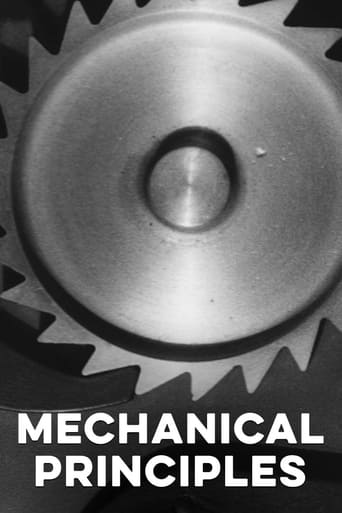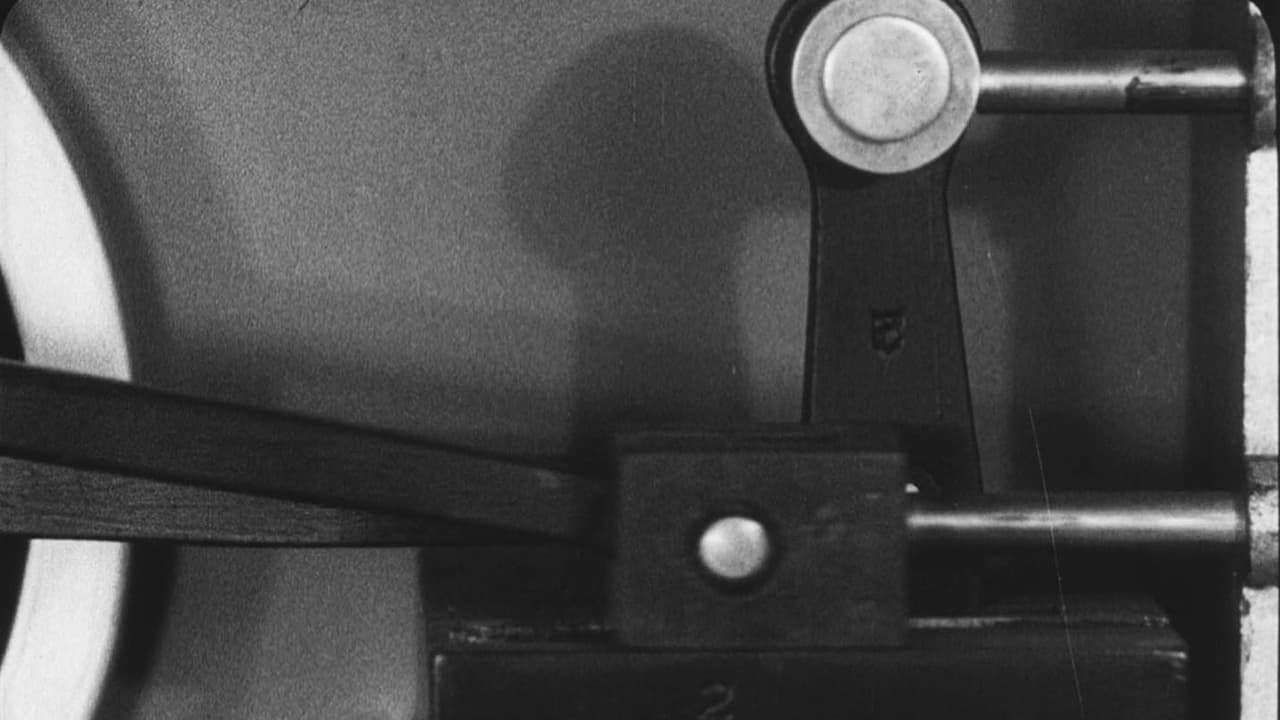Horst in Translation (filmreviews@web.de)
"Mechanical Principles" is a 10.5-minute documentary short that shows us all kinds of mechanical movements from a machine. The director here is Ralph Steiner and even if this black-and-white sound film here is not his most famous work, then it is still somewhat remembered as an interesting piece of filmmaking from its time. "Its time" means 1930 in this specific case, so this one here is already over 85 years old. People with a bigger interest in mechanics and dynamics may have a great time watching this one, but to me it is really just another fairly forgettable experimental film and I see nothing truly memorable in here. I do not recommend the watch and **/***** is still fairly generous as this is a very monotone movie and actually should have run for no longer than 5 minutes. Thumbs down.
veronikastehr
Working of machine resulted here due to the ''clarity'' of choice of motifs and photographs in an abstract contemplation about energy and eternal cosmic circular change. Painstakingly elaborated compositions of each shot stimulate the viewer to perceive the exactness according to which function various parts of every machine speaking at the same time about the way how the director Ralph Steiner works – avant-garde filmmaker active in the early 20th century. The same as in the working of machine, in this film Steiner left no room for improvisation. It is however interesting that the work as a whole looses the harshness of cold mathematical approach and gives the effect of visual poetic dedicated to the epoch of machines – constructed mechanisms that produce energy, invisible omnipresent power.
Michael_Elliott
Mechanical Principles (1930)*** (out of 4) Imaginative short from Ralph Steiner is a 100% visual feast as we see close up shots of pendulums swaying, pistons going up and down or side to side and various other mechanical operations. This is just one of many shorts including on the UNSEEN CINEMA set, which also shows up on Turner Classic Movies ever so often. This is a pretty entertaining set of avant garde films and this one here contains some of the most imagination. I will admit that at 10-minutes I began to feel a bit drained towards the end but there's no question that the director put a lot of thought into the final product. I find that many avant garde films just try to show random images in a variety of ways just so the finished product can have some sort of strange or weird feel to it. That certainly happens here but the exception is that every shot seems to have been well thought out and placed in an order that makes the film run smoothly and not once do we just feel like we're seeing stuff pieced together without any thought. This is where the imagination comes from and what makes the film really set itself apart from others like it. Some reviewers have mentioned the possible influence on Chaplin's MODERN TIMES and that's certainly possible.
ackstasis
One might consider 'Mechnical Principles (1930)' to be the converse of Ralph Steiner's most well-known work, 'H2O (1929).' The latter film was a close-up examination of water, focusing intensely on the reflection and refraction of light by the liquid surface, an entirely natural substance that mesmerises through the sheer poetic randomness of its movements. There's nothing random about the mechanical movements of the former film. Cogs turn, pistons pump – repetitively and relentlessly, Mankind's constructions continue to carve perfect geometric circles. It's a bit like watching mathematics in motion. The transition between each shot is wonderfully smooth, the film constructed as a sort of mechanical waltz. Around this time, Hollywood directors like Busby Berkeley were engineering extravagant musical numbers in which dancers were utilised as mere cogs in a machine, each movement dependent upon the ability of the individual dancers to perform their role without error. In 'Mechanical Principles,' this perfection is assured, for Man has never been able to replicate the precision of his machines. I've always found it fascinating how two men can view the same thing through very different eyes. There's something almost affectionate about how Steiner frames the perfectly-weighted movement of the factory machinery, and yet this is the same sort of industrial monotony against which Charles Chaplin campaigned in 'Modern Times (1936).' Maybe both artists are right. 'Mechanical Principles' is surely a mesmerising ten minutes, but, had it gone on for much longer, I might have ended up as hopelessly deranged as Chaplin's Little Tramp.


 AD
AD
